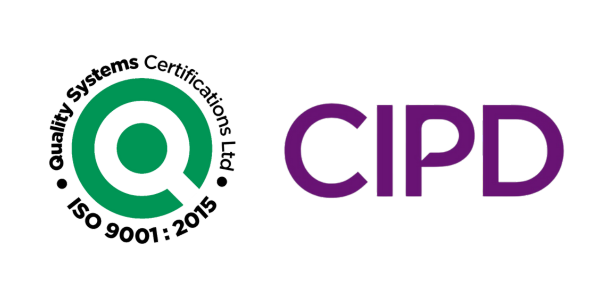
9 Trends That Will Shape Work in 2021 and Beyond

9 Trends That Will Shape Work in 2021 and Beyond
by Brian Kropp, January 14, 2021
Harvard Business Review – could these US predictions play out in the UK?
Summary. While 2020 was the most volatile year in modern history, it would be a mistake to think that we’re in for smoother sailing this year. In fact, as we move into 2021 and beyond, the rate of disruption will potentially accelerate as the implications from 2020 play out…more
It’s fair to say that 2020 rocked many organizations and business models, upending priorities and plans as business leaders scrambled to navigate a rapidly changing environment. For many organizations this included responding to the social justice movements, shifting to a full-time remote staff, determining how best to support employees’ wellbeing, managing a hybrid workforce, and now addressing legal concerns around the Covid-19 vaccine.
It would be nice to believe that 2021 will be about stability and getting back to normal; however, this year is likely to be another full of major transitions. While there has been a lot of focus on the increase in the number of employees working remotely at least part of the time going forward, there are nine additional forces that I think will shape business in 2021:
1. Employers will shift from managing the employee experience to managing the life experience of their employees. The pandemic has given business leaders increased visibility into the personal lives of their employees, who have faced unprecedented personal and professional struggles over the last year.
It’s become clear that supporting employees in their personal lives more effectively enables employees to not only have better lives, but also to perform at a higher level. According to Gartner’s 2020 ReimagineHR Employee Survey, employers that support employees with their life experience see a 23% increase in the number of employees reporting better mental health and a 17% increase in the number of employees reporting better physical health. There is also a real benefit to employers, who see a 21% increase in the number of high performers compared to organizations that don’t provide the same degree of support to their employees.
That’s why 2021 will be the year where employer support for mental health, financial health, and even things that were previously seen as out of bounds, like sleep, will become the table stakes benefits offered to employees.
2. More companies will adopt stances on current societal and political debates. Employees’ desire to work for organizations whose values align with their own has been growing for some time. In 2020, this desire accelerated: Gartner research shows that 74% of employees expect their employer to become more actively involved in the cultural debates of the day. I believe CEOs will have to respond in order to retain and attract the best talent.
However, making statements about the issues of the day is no longer enough: Employees expect more. And CEOs who have spent real resources on these issues have been rewarded with more highly engaged employees. A Gartner survey found that the number of employees who were considered highly engaged increased from 40% to 60% when their organization acted on today’s social issues.
3. The gender-wage gap will continue to increase as employees return to the office. Many organizations have already adopted a hybrid workforce — or are planning to this year — that enables employees to work from the corporate office, their home, or an alternate third space (coffee shop, co-working space, etc.). In this hybrid scenario, we are hearing from CHROs that the surveys of their own employees are showing that men are more likely to decide to return to their workplace, while women are more likely to continue to work from home.
According to a recent Gartner survey, 64% of managers believe that office workers are higher performers than remote workers, and in turn are likely to give in-office workers a higher raise than those who work from home. However, data that we have collected from both 2019 (pre-pandemic) and 2020 (during the pandemic) shows the opposite: Full-time remote workers are 5% more likely to be high performers than those who work full-time from the office.
So if men are more likely to work from the office, and managers retain a bias towards in-office workers, we should expect to see managers over-rewarding male employees at the expense of female employees, worsening the gender-wage gap at a time when the pandemic has already had a disproportionate impact on women.
4. New regulations will limit employee monitoring. During the pandemic, more than 1 out of 4 companies has purchased new technology, for the first time, to passively track and monitor their employees. However, many of these same companies haven’t determined how to balance employee privacy with the technology, and employees are frustrated. Gartner research found that less than 50% of employees trust their organization with their data, and 44% don’t receive any information regarding the data collected about them. In 2021, we expect a variety of new regulations at the state and local level that will start to put limits on what employers can track about their employees. Given the variability that this will create, companies are likely to adopt the most restrictive standards across their workforce.
5. Flexibility will shift from location to time. While enabling employees to work remotely became commonplace across 2020 (and will continue this year and beyond), the next wave of flexibility will be around when employees are expected to work.
Gartner’s 2020 ReimagineHR Employee Survey revealed that only 36% of employees were high performers at organizations with a standard 40-hour work week. Organizations that offer employees flexibility over when, where and how much they work, see 55% of their work force as high performers. In 2021, I expect to see a rise of new jobs where employees will be measured by their output, as opposed to an agreed-upon set of hours.
6. Leading companies will make bulk purchases of the Covid vaccine for employees — and will be sued over Covid vaccine requirements. Employers that provide the Covid vaccine to their workforce will leverage this action as a key differentiator to attract and retain talent. In tandem with employers providing the vaccine, several companies will be sued for requiring their employees to have proof of vaccination before allowing them to return to the workplace. The corresponding litigation will slow return-to-workplace efforts even as vaccine usage increases.
7. Mental health support is the new normal. Across the last several years, employers have offered new benefits to support their employees, for instance, expanded parental leave. Even before the pandemic, Gartner research revealed that 45% of well-being budget increases were being allocated to mental and emotional well-being programs. The Covid-19 pandemic has brought well-being to the forefront as employers are more aware than ever how of the impact of mental health on employees and by association, the workplace.
By late March, 68% of organizations had introduced at least one new wellness benefit to aid employees during the pandemic. In 2021, employers will go even further by working to de-stigmatize mental health by expanding mental health benefits, creating days where they shut the entire company down for a day to offer “a collective mental health day” to build awareness across the workforce about this critical issue.
8. Employers will look to “rent” talent to fill the skills gap. The number of skills employers are looking for has risen dramatically — our analysis shows that companies listed about 33% more skills on job ads in 2020 than they did in 2017. Ultimately, organizations simply can’t reskill the capabilities of their existing workforce fast enough to meet their changing needs.
At the margin, some companies will shift from trying to build skills for an uncertain future and instead just hire, and pay a premium for those skills, when the need actually manifests. Other companies will instead expand their use of contingent and contract hiring or expand their partnerships with organizations to “rent” employees for a short period of time to meet the skill needs that they are facing.
9. States will compete to attract individual talent rather than trying to get companies to relocate. States and cities have historically offered incentives to get companies to relocate to their jurisdictions. The belief being if you can incentivize companies to come, they will bring jobs with them. The new era of remote and hybrid work will evolve this strategy – where an employee lives will be less tied to where their employer is located than ever before.
Given this breaking of company location and employee location, states and cities will start to use their tax policies to create incentives for individuals to relocate to their jurisdictions rather than giving tax credits solely to large companies to relocate. We are already seeing fledging programs in cities like Topeka, KS and Tulsa, OK where they are offering remote employees up to $15,000 to move there. These jurisdictions will compete for individual employees and their jobs, not just the employer.
While 2020 was the most volatile year in modern history, we would be mistaken to think that the disruption is over. Rather, as we move into 2021 and beyond, the rate of disruption will potentially accelerate as the implications from 2020 play out across the next several years.
=========
The post 9 Trends That Will Shape Work in 2021 and Beyond appeared first on Shepherd Stubbs.
BLOG


"Committed to Diversity and Inclusion"

HOME | CANDIDATES | CLIENTS | ADVICE CENTRE | CONTACT | BEDFORD | BIGGLESWADE | HUNTINGDON | LUTON | MILTON KEYNES | ST NEOTS | PRIVACY POLICY | PRIVACY STATEMENT
